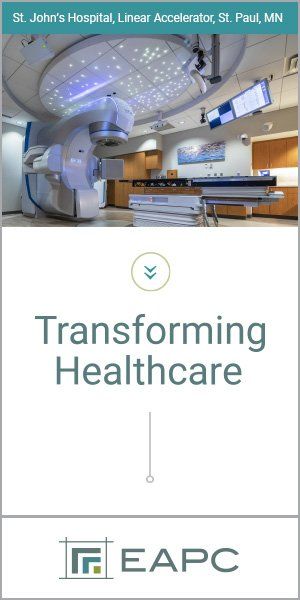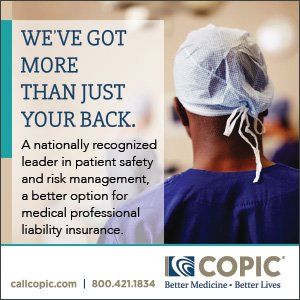any clinicians and nurses are leaving health care due to experiencing burnout. When I started my career as a pediatrician 40 years ago, I can’t recall ever hearing about this topic, or people leaving the field of medicine due to burnout. Yes, there has always been frustration with various aspects of health care, but these frustrations seem to have increased in the last decade. In my mind, three main reasons have contributed to this burnout, at least in the outpatient practice of medicine: electronic medical record (EMR) usage, increased oversight and the COVID pandemic.
Provider perspective
Burnout Repositioned
Regaining the joy in providing patient care
BY Sheldon Berkowitz, MD, FAAP
EMRs have been both a lifesaver (literally in some cases) and a major hassle. Having access to a patient’s medical records easily, without sifting through reams of paper records, as well as ready and immediate access to laboratory and other diagnostic results, has been wonderful. However, there is increased demand to make sure documentation meets all regulatory and billing requirements, as well as meeting other third party requirements. Documentation of a patient’s visit can often require substantial time at the end of a long clinic day and extend into the evening—often impacting a clinician’s time with their family and their work-life balance.
My experience over that week was remarkable.
Increased oversight takes many forms, including outside agencies requiring certain quality metrics are met (which may or may not actually improve patient health and wellbeing), either for ongoing accreditation or pay for performance “bonuses.” Oversight can also refer to the loss of autonomy that many clinicians experience as those in leadership positions tell them how they “need” to practice, rather than allowing the clinicians to decide what is in the best interests of their patients and families and how best to provide this care.
Finally, although I retired from my clinical practice of pediatrics in May 2020, as the COVID pandemic was just getting started, I know from talking to my former colleagues and from what I have read, that stresses in practicing have only increased. Doing more with less, caring for patients for whom there often is nothing that could be done and the lack of faith by many patients and families in what they were told by public health officials and their own clinicians has driven many to leave health care.
None of these problems have easy solutions to help counteract clinician burnout. However, I recently had an eye-opening experience that reminded me of why many of us went into health care and maybe holds a message for how to offset some of the contributing factors leading to burnout.
Earlier this year, I traveled to Warsaw, Poland, with International Medical Relief to provide medical care for Ukrainian refugees (or guests, as we learned to call them) currently living in Warsaw. My experience over that week was remarkable. We provided care for patients and families who were living in shelter situations, some for over 7 months. My fellow clinicians and I provided care for both their acute (e.g., cough, sore throats, acute anxiety, muscle aches) and chronic (e.g., hypertension, congenital heart problems, depression) problems. We often just listened to their stories as they needed to share them. We were told to take as much time with each patient as needed (something I had never been told in my entire medical career) and did not feel rushed to see the next patient. We documented minimally what we thought was necessary and didn’t worry about billing since there was none. While confidentiality and privacy were important, we often saw patients in the same small space as our colleagues were seeing their own patients. We didn’t have to worry about HIPPA violations, and we did the best we could, realizing we couldn’t solve all their problems. The patients and their families were very grateful for the care they received. No one complained about waiting to be seen, something that is a regular occurrence in most practices these days. I realized that providing care like this is why we all went into medicine.
Being able to spend the time needed (not allotted) to care for the patient would also help all clinicians.
It is my belief that if everyone feeling burnt out providing health care in our current U.S. system could spend time on a medical mission like the one I went on, or others around the world, it would likely help them to regain their sense of joy. This joy is felt both in providing needed care without a lot of oversight or metrics needing to be met and the positive feedback from the patients and families receiving the care. Clinicians could be recharged to return to the U.S. and provide care in our system. We need to look with fresh eyes at our current health care systems and figure out how documentation could be improved to what is clinically needed (not administratively needed). We need to lessen decision-making from “above” and return it to the local level of a clinic. We must focus on true quality care, not metrics being met, while also being able to spend the time needed (not allotted) to care for the patient. This would help all clinicians and then, perhaps, many would not feel it necessary to leave the health care profession due to burnout.
Sheldon Berkowitz, MD, FAAP, is a retired pediatrician and past president of the Minnesota chapter of the American Academy of Pediatrics.
MORE STORIES IN THIS ISSUE
cover story one
Mission Management: Connecting hospital trustees and physicians
By Daniel K. Zismer, PhD
cover story two
Generation Now Nursing: Redefining the value proposition













